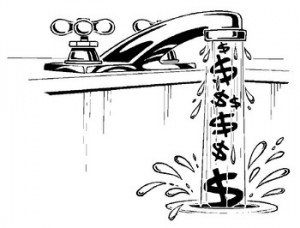 Contrary to popular health economic wisdom, the group purchasing organization (GPO) raises costs for its constituents — hospitals — according to a study by two respected economists, Robert Litan and Hal Singer.
Contrary to popular health economic wisdom, the group purchasing organization (GPO) raises costs for its constituents — hospitals — according to a study by two respected economists, Robert Litan and Hal Singer.
Do Group Purchasing Organizations Achieve the Best Prices for Member Hospitals? An Empirical Analysis of Aftermarket Transactions found that hospitals could have saved, on average, 10 percent between 2001 through 2010 when they purchased medical devices aftermarket, when GPOs supposedly negotiated the best price; and, in 2010, the savings for hospitals was as much as 18 percent for purchases. The researchers analyzed 8,100 transactions from the MEMdata database.
The authors recommend changing the incentive-payment regime for GPOs by reinstating the Medicare anti-kickback statute of the 1986 Social Security Act. Doing so would reduce private U.S. health care expenditures by up to $25 billion a year, based on Litan’s and Singer’s math. Federal spending would fall by about $11.5 billion a year.
The objective of the GPO is to negotiate the best prices for supplies and equipment for member organizations (generally hospitals and physician groups). GPOs make money by taking a share of the revenues generated under the contracts they strike for their members; that incentive ranges from 2-3 percent to as much as 18 percent, according to the Government Accounting Office (GAO). The question Litan and Singer ask is whether the margin earned by GPOs distorts healthy market competition.
The conclusion: “so long as GPOs are compensated via an equity interest in the concession, they have an inherent conflict that limits their ability to negotiate the best prices for their member hospitals and those hospitals (and their payors, including the federal government) will likely continue to overpay for medical devices.”
Health Populi’s Hot Points: As the U.S. looks to bend that stubborn, upwardly-mobile health cost curve, Litan and Singer point to yet another source of health price/cost inflation: the GPO, and its incentive structure.
There are many examples of savvy health care purchasers who have avoided joining GPOs to purchase supplies and devices on the market on their own. The L.A. Times found, in 2005, that a group of oncologists at UCLA who contracted with drug suppliers themselves saved hundreds of thousands of dollars that otherwise would have gone to Novation, the university’s drug contract GPO.
This study was commissioned by the Medical Device Manufacturers Association (MDMA). It is in their best interest to ensure as open and free a market to drive good prices to end-user customers. In this case, though, the researchers have done their homework and have come up with an important finding that should be addressed by policymakers and regulators in the larger context of health reform.




 Interviewed live on BNN Bloomberg (Canada) on the market for GLP-1 drugs for weight loss and their impact on both the health care system and consumer goods and services -- notably, food, nutrition, retail health, gyms, and other sectors.
Interviewed live on BNN Bloomberg (Canada) on the market for GLP-1 drugs for weight loss and their impact on both the health care system and consumer goods and services -- notably, food, nutrition, retail health, gyms, and other sectors. Thank you, Feedspot, for
Thank you, Feedspot, for  As you may know, I have been splitting work- and living-time between the U.S. and the E.U., most recently living in and working from Brussels. In the month of September 2024, I'll be splitting time between London and other parts of the U.K., and Italy where I'll be working with clients on consumer health, self-care and home care focused on food-as-medicine, digital health, business and scenario planning for the future...
As you may know, I have been splitting work- and living-time between the U.S. and the E.U., most recently living in and working from Brussels. In the month of September 2024, I'll be splitting time between London and other parts of the U.K., and Italy where I'll be working with clients on consumer health, self-care and home care focused on food-as-medicine, digital health, business and scenario planning for the future...